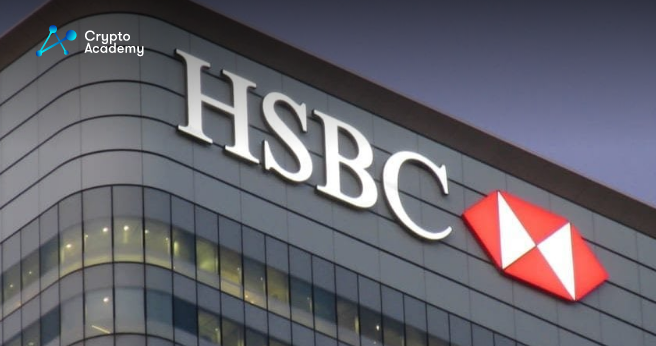Biggest Bank In Hong Kong Now Offering Bitcoin ETFs

In a significant development, Hong Kong’s largest bank, HSBC Holdings Plc, is offering Bitcoin-linked ETFs. The Chinese territory is looking to position itself as a global hub for cryptocurrencies. Despite last year’s market volatility, Hong Kong is ready to embrace cryptocurrencies.
HSBC’s customers can now trade Bitcoin ETFs via their dedicated app. However, a pre-requisite involves going through several educational materials and disclosures. These documents detail the risks linked with crypto. The timeline for when HSBC initiated this service remains unclear, with the bank’s representatives maintaining silence on the matter.
Hong Kong’s welcoming approach to cryptocurrencies is undeniable. This is evident despite the crypto market’s steep $1.5 trillion fall last year. Accessing traditional banking services has been a struggle for crypto firms. To address this, Hong Kong regulators are promoting banking services specifically for these firms.
HSBC has been vocal about the potential risks tied to crypto trading. The bank identified regulatory uncertainty, liquidity issues, and money laundering possibilities. It labelled virtual asset-related products as “highly speculative”. The bank also mentioned the possibility of major price fluctuations within short time frames.
HSBC’s Entry To Crypto Was Unexpected
HSBC’s foray into cryptocurrency is noteworthy, considering the cautious stance of its CEO, Noel Quinn. In 2021, Quinn stated the bank had no plans for a cryptocurrency trading desk. He also dismissed the idea of offering customers cryptocurrencies as an investment.
The bank’s pivot aligns with Hong Kong’s new crypto regulatory framework. Implemented on June 1, the new guidelines permit crypto exchanges to offer trading services. However, these services are only for those who secure and follow the necessary licenses. These licenses were designed in response to the 2022 crypto crash’s exposed vulnerabilities.
Authorities have also given the green light to Bitcoin and Ethereum futures ETFs from CME Group Inc. Since mid-December, three such ETFs have launched. This marks a significant stride in Hong Kong’s bid to be a dominant player in the global crypto industry.
HSBC’s decision to offer Bitcoin ETFs is a major milestone for Hong Kong’s finance industry. It indicates the city’s readiness to adapt to the changing financial landscape, supported by a strong regulatory structure. As cryptocurrencies continue to gain popularity, it will be intriguing to see the response from other traditional banks.
Hong Kong Still Aims To Become An International Crypto Hub
Hong Kong’s intent to become a major center for cryptocurrency is drawing attention. Among those watching these developments is Circle Internet Financial Ltd. This US-based fintech firm has a keen eye on the territory’s developments. Jeremy Allaire, Circle’s co-founder and CEO, spotlighted this during an interview.
“Hong Kong clearly is looking to establish itself as a very significant center for digital assets markets and for stablecoins and we are paying very close attention to that,”
Jeremy Allaire, Co-founder and CEO of Circle
Circle is the issuer of the world’s second-largest stablecoin, USD Coin (USDC). As such, Allaire highlighted the strategic significance of Asia to their business. Allaire’s comments followed Circle’s recent licensing success in Singapore. Circle now has a license as a major payments institution in the city-state. It allows Circle to offer digital payment token services. It also permits money transfer services within Singapore. This license is instrumental in extending the reach of USD Coin in the region.
Hong Kong introduced a new crypto regulatory regime affecting Bitcoin as well on June 1. This change positions it as an attractive destination for global crypto firms. The ongoing US crackdown has firms seeking suitable, safe locations for investors and users. Stablecoin regulations in Hong Kong, however, are still being formulated.
Beijing quietly supports the pro-crypto and Bitcoin ambitions of Hong Kong. Still, crypto trading remains banned in mainland China. Yet, Hong Kong’s forward-thinking approach raises questions about a potential early lift of China’s ban.
Allaire suggested that Hong Kong could serve as a proxy. “What’s happening in Hong Kong may be a proxy for ultimately how these markets grow in Greater China,” he said. Hong Kong and Dubai are actively attracting companies. Meanwhile, Singapore is planning to limit retail investor participation. Amidst these moves, Allaire underlined the significant demand for digital dollars in emerging markets. He identified Asia as the center of this demand.

Comments are closed.